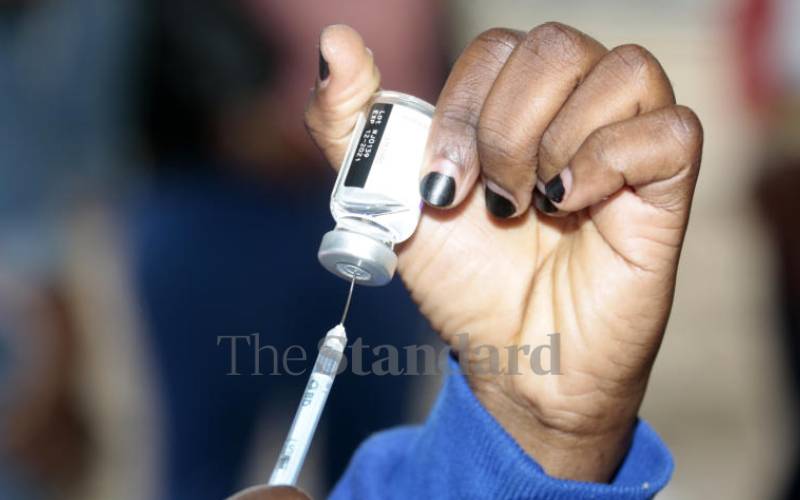
Those who got Johnson & Johnson will receive Oxford/AstraZeneca, Pfizer or Moderna. [Boniface Okendo, Standard]
Scientists have reassured Kenyans of safety in mixing of Covid-19 vaccines, as admission of booster shots picks up.
Moses Masika, a virologist at the KAVI Institute of Clinical Research, explained that mixing vaccines, scientifically known as heterologous, is safe, as long as they are approved by the World Health Organisation (WHO).
Facts First
Unlock bold, fearless reporting, exclusive stories, investigations, and in-depth analysis with The Standard INSiDER subscription.
Already have an account? Login
 The Standard Group Plc is a multi-media organization with investments in media
platforms spanning newspaper print
operations, television, radio broadcasting, digital and online services. The
Standard Group is recognized as a
leading multi-media house in Kenya with a key influence in matters of national
and international interest.
The Standard Group Plc is a multi-media organization with investments in media
platforms spanning newspaper print
operations, television, radio broadcasting, digital and online services. The
Standard Group is recognized as a
leading multi-media house in Kenya with a key influence in matters of national
and international interest.











